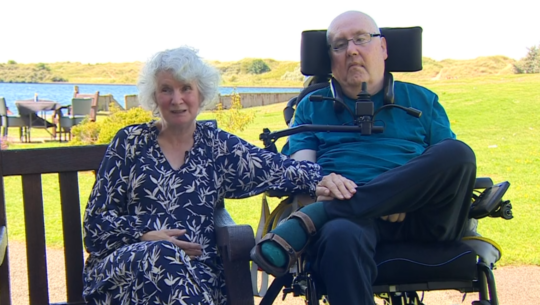
Frequently Asked Questions
Have more questions about who we are and what we do? Have a look at our FAQ page where we’ve answered the questions we hear most often.
Learn moreHelp us protect respite funding. Learn more about our Give me a break Campaign.

The Care Act 2014 aims to ensure that disabled people and carers in the UK receive the support they need, including access to respite.
“The Care Act helps to improve people’s independence and wellbeing. It makes clear that local authorities must provide or arrange services that help prevent people developing needs for care and support or delay people deteriorating such that they would need ongoing care and support.”
— Department of Health and Social Care
For more information and useful fact sheets, visit the Department of Health Social Care’s website.
Under the Care Act, a carer’s assessment is currently the only way of providing statutory access to respite.
According to the Department of Health and Social Care, this assessment will consider the impact of caring on the carer, including what things a carer wants to achieve in their own day-to-day life, whether the carer is able or willing to carry on caring, whether they work or want to work, and whether they want to study or do more socially.
A carer will have eligible needs if they meet all of the following criteria:
If eligible, the Local Authority must agree a support plan, which describes how the carer’s needs will be met.
There is currently no specific statutory provision for respite. However, if a carer says to the local authority they are no longer willing and able to provide support or they physically cannot go on without a break, then the Local Authority must step in.
Because Local Authorities are only stepping in when there is a real breakdown in a caring relationship, there is a growing number of carers reaching breaking point, which is fuelling a respite crisis.

Revitalise campaign to promote the urgent need for more to be done to ensure that every carer and disabled person can take the breaks that they need. Our Give me a break Campaign aims to raise awareness of the crisis and demand more statutory protections for respite, to prevent burnout and breakdown.
Learn moreRevitalise provide respite holidays with 24-hour care from our two, fully-accessible holiday centres in Southport and Chigwell, Essex. Learn more about our Respite Holidays by clicking the button below.

Have more questions about who we are and what we do? Have a look at our FAQ page where we’ve answered the questions we hear most often.
Learn more
As a national charity, we fundraise to subsidise all our prices. Visit our information page to learn more about funding your respite holiday.
Learn more
Discover stories and testimonials from other Revitalise guests to learn more about the difference we make and what you can expect.
Learn more